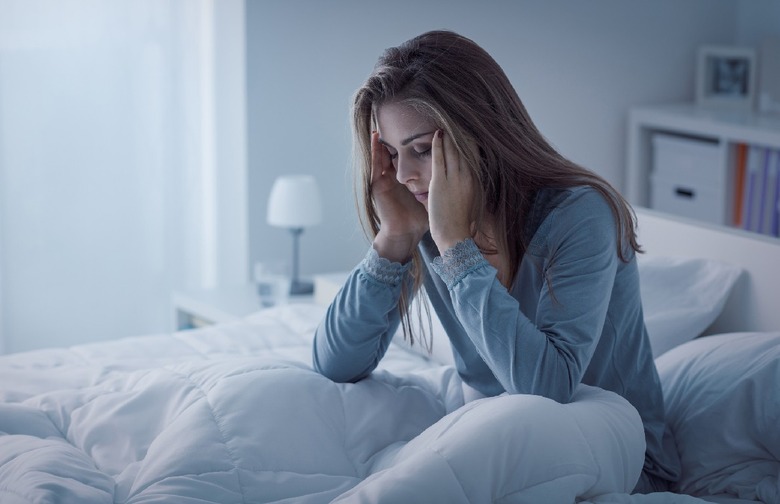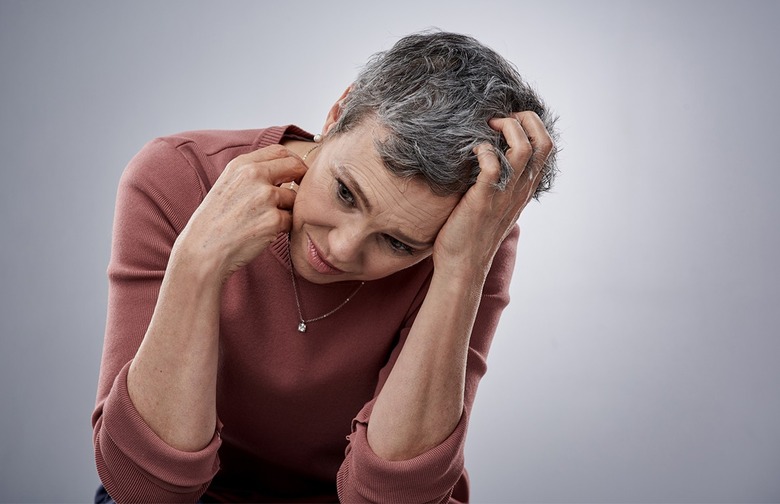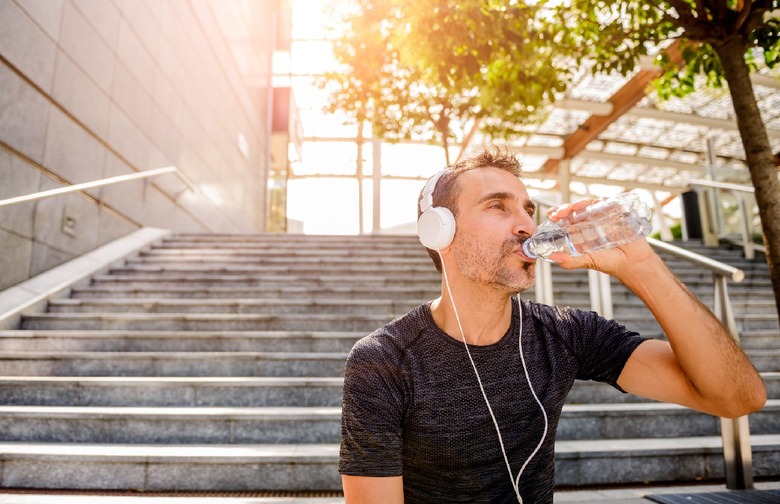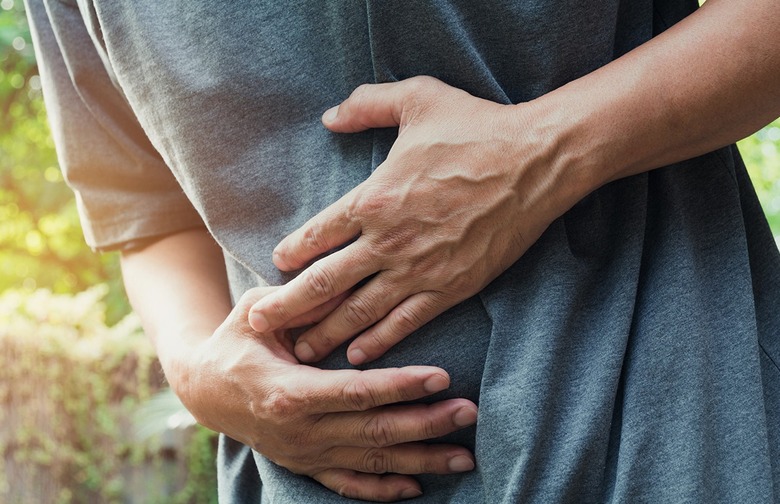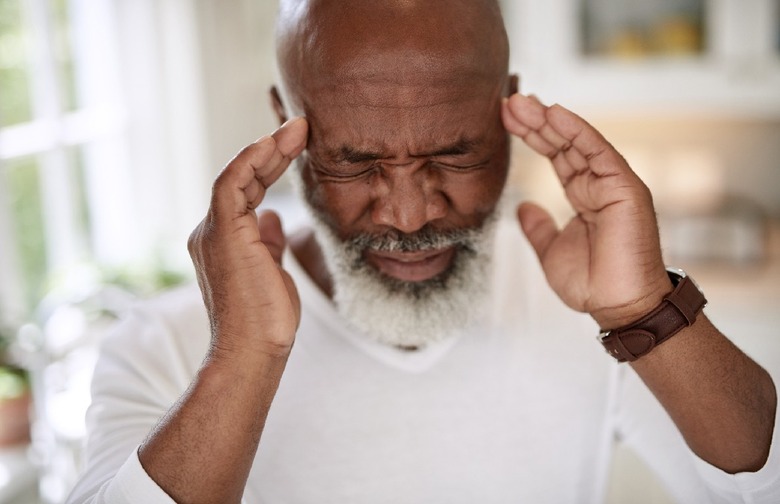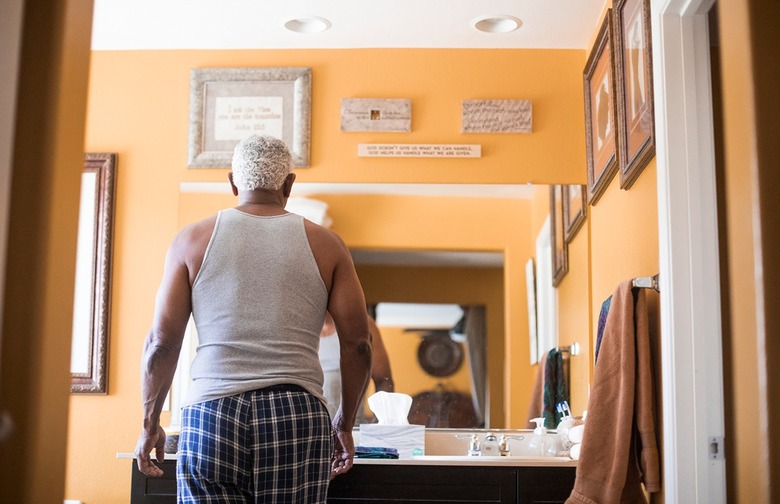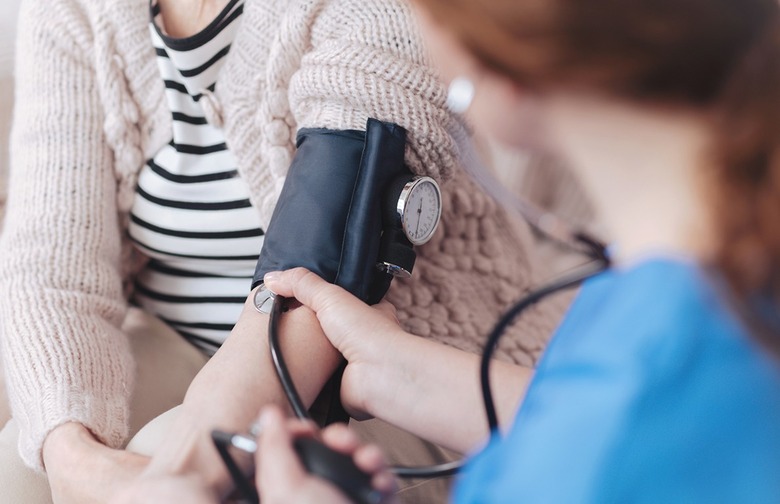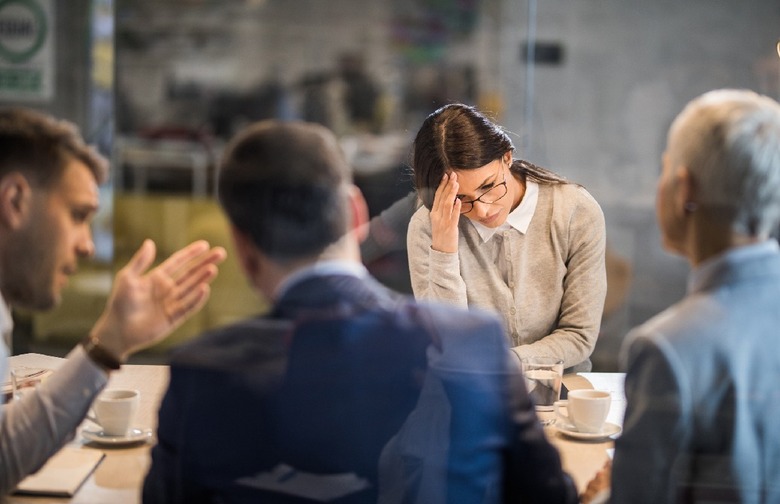10 Signs You Should Cut Back On Coffee
It's not your imagination: Coffee is addictive. Caffeine is a substance that can lead to addiction; you may end up slowly, subtly draining cash from your budget as you purchase yet another espresso drink to get your fix. But unlike some other addictive substances, caffeine isn't all that bad for you — unless you drink too much.
Some research suggests that there is no such thing as drinking too much coffee — that the benefits of the drink linked to its antioxidants outweigh any drawbacks. Of course, there is a point when coffee consumption becomes dangerous. But the average person would have to drink, like, a ton of coffee to have a seriously life-threatening effect. Everyone's body reacts differently to caffeine. All in all, your coffee habit is probably healthier than relying on other sources of caffeine, such as soda or energy drinks.
Regardless, there are reasons that have little to do with your longevity that you may want to cut back; weaning yourself off of the drink can help you cut costs, maintain a better sleep schedule, and reduce uncomfortable side effects of drinking too much. But how can you tell when you're overdoing it? Giving up caffeine is not easy, and you don't want to have to go through it unless you have to. Here are 10 things that may happen when your body has had too much coffee.
You can’t sleep at night
Insomnia could be caused by a number of things, some of which are out of your control. But overloading on coffee can keep you up at night — even if you only drink it in the morning. Everyone's caffeine tolerance is different. But large amounts of caffeine are associated with a decrease in sleep time and quality, according to some studies. Moderate amounts of caffeine, on the other hand, don't seem to have any effect; studies show that normally "good sleepers" are not influenced by an occasional cup of coffee.
You have worsening anxiety
Coffee triggers the release of adrenaline, which functions as your "fight or flight" hormone. This can make you feel more energized — but it can also make you anxious. In fact, caffeine-induced anxiety disorder is listed in the DSM-5, the leading diagnostic tool for psychologists, along with other substance-related diagnoses. If you start to feel anxious when you hadn't before, or your normal anxiety symptoms begin to worsen, you may want to cut back by a cup or two. (And you may want to take a look at your other habits, too, since they may have an effect.)
You’re constantly dehydrated
Coffee is actually not a diuretic, despite popular belief. But it does cause frequent urination. And if you're not staying hydrated with water as well, too much coffee can make you feel dehydrated as a result. Coffee is not a sufficient substitute for water, so make sure you're drinking the required number of glasses of water per day. If you don't and you're relying on coffee instead, this is what may happen to your body as a result.
You’re experiencing stomach pains
For a long time, people believed that coffee caused stomach ulcers. That's not actually true — at least, science hasn't shown a correlation between the two. However, coffee has been correlated with gastrointestinal distress, specifically in terms of acid reflux. If your stomach hurts after you have your morning cup of joe, it might be a sign you should cut back.
You feel jittery
Caffeine is a stimulant, which is why it can be so effective in helping you feel awake. But drink too much caffeine from your coffee and you could end up with the jitters. Studies show that drinking over 1,000 milligrams of caffeine in a day causes jittery behavior in many people; and for those with a high sensitivity to caffeine, even moderate amounts can have the same effect.
You have frequent headaches
You probably won't experience a headache while you're drinking coffee, but you might get a nasty headache when you're not. People who drink caffeine regularly can develop an addiction — meaning that when you go too many hours without getting your fix, you can experience withdrawal. One of these withdrawal symptoms is a headache. A quick fix for getting rid of the pain is to guzzle down another cup. But the headache may soon return. Your long-term fix? Cutting back on caffeine.
You have diarrhea
Coffee, whether caffeinated or decaffeinated, has a laxative effect. This is due to the release of gastrin that occurs in your stomach when you drink it; the hormone speeds up activity in the colon, making you need to use the bathroom more quickly than you would otherwise. Drink too much coffee, and you may get diarrhea or otherwise experience some discomfort.
Your blood pressure is increasing
Caffeine stimulates the nervous system, which can impact blood pressure if you overdo it. Studies have shown that caffeine intake before exercise has an elevating effect on blood pressure during exercise — and that for people who are not used to drinking coffee regularly, it can elevate blood pressure in the short-term. If you have a sudden spike in blood pressure when you didn't have problems with hypertension before, too much coffee may be to blame.
You are irritable or moody
Coffee is actually a mood booster in many cases. But if you are feeling overstimulated and jittery, you may start to feel irritable and erratic instead. The stimulant effect of caffeine causes a heightened sensitivity to things happening around you — noises, stressors, and other unpleasant sensations included.
Your teeth are turning yellow
Is your smile starting to discolor? If you're displeased with this effect, a decrease in your coffee consumption could help. Coffee contains substances called tannins that stick to your teeth and can leave behind a yellow hue. There are ways to combat this while still getting your fix: teeth whiteners, brushing with baking soda, and using special toothpaste, for example. But turning to one of these coffee alternatives to energize you in the morning may do the trick.
More From The Daily Meal:
The Best Coffee Chains in America
12 Healthy Ways to Sweeten Your Coffee
The Healthiest and Unhealthiest Creamers for Your Coffee
